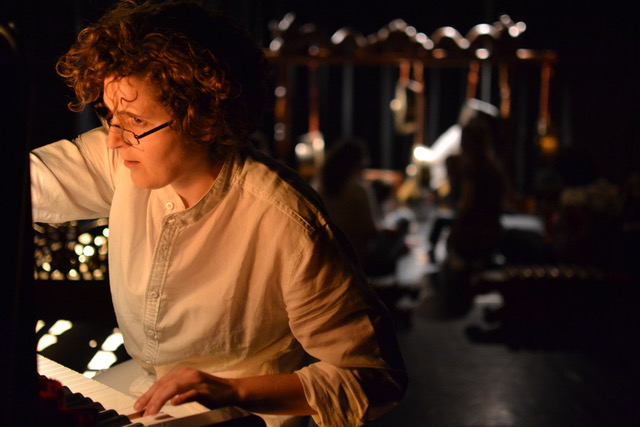
On September 24, 2025, by 2pm, will be held the doctoral examinations in Musicology – Specialization in Ethnomusicology of Master Teresa Maria Marques de Matos Ferreira (Teresa Gentil), who will defend her dissertation titled From ‘authentic voice’ to ‘voice of Portugal’: The construction of Amália Rodrigues’ voice (1939-1949), supervised by Salwa El-Shawan Castelo-Branco and co-supervised by Rui Vieira Nery.
Ph.D Committee:
- Prof. Dr João Soeiro de Carvalho, President of the Committee (INET-md, NOVA FCSH)
- Prof. Dr Kimberly Holton (Rutgers University)
- Prof. Dr Francisco Palomares Martinho (Universidade de São Paulo)
- Prof. Dr Nuno Domingos (ICS, ULisboa)
- Prof. Dr Sara Pereira (Director of Museu do Fado)
- Prof. Dr Salwa El-Shawan Castelo-Branco, Supervisor (INET-md, NOVA FCSH)
- Prof. Dr Paula Gomes Ribeiro (CESEM, NOVA FCSH)
- Prof. Dr Manuel Deniz Silva (INET-md, NOVA FCSH)
From ‘authentic voice’ to ‘voice of Portugal’: The construction of Amália Rodrigues’ voice (1939-1949)
This thesis addresses the construction of Amália Rodrigues’ voice as a sonic referent of Portugal and an acoustic materialization of identity-related ideas, concepts, emotions, and feelings, notions of socioeconomic class, education, gender, ‘race’, among others. How were these and other ideas about Amália Rodrigues’ voice constructed, reconfigured, and re-signified, and what do they reveal about the sociocultural contexts in which they were produced? Why did her voice stand out among others that were heard in the same spaces of sociability? How might Amália’s voice have influenced those same contexts and the very conception of voice, especially the ‘female’ voice?
In order to answer these and other questions, I analyze the voice as discursively constructed in press publications during the first decade of Amália’s career (1939- 1949), which allow access to the contexts and ideological assumptions underpinning the ways voices were produced, interpreted, and communicated. I also examine Amália’s interpretative voice in her first phonographic recordings (1945), in the films ‘Capas Negras’ (1946) and ‘Fado História de uma Cantadeira’ (1947). These examples allow us to imagine and map the dialogue between different vocal aesthetics and interpretive styles. The intertextual relationships established between these two dimensions of the voice – discursive and interpretative – were reified in the figure and voice of Amália Rodrigues. I argue that Amália’s voice is a space of encounter and confrontation between individual subjectivities and sociopolitical and institutional structures and values. Understanding and mapping the construction of Amália’s voice and the ways in which it was politically and culturally appropriated, shaped, and redefined will contribute to our understanding of its impact on Portuguese society and culture.
Keywords: Voice as a cultural construct; Fado; Amália Rodrigues; Estado Novo; nostalgia; cosmopolitanism; nationalism.

